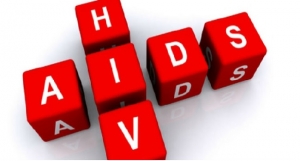
The immediate past Director General of the National Agency for the Control of AIDS (NACA), Professor John Idoko, made the demand while delivering a lecture at the institute of Public Health in Obafemi Awolowo University, Ile-Ife.
Professor Idoko said Nigeria had made an appreciable progress at reducing HIV/AIDS prevalence, from six per cent to three per cent, but decried a situation where stigmatisation and discrimination have continued to undermine effective responses to HIV/AIDS treatment in Nigeria.
He gave the speech at the 7th Professor Adetokunbo Lucas Public Health Leadership Forum Guest Lecture organised by the Institute of Public Health, Obafemi Awolowo University, Ile-Ife.
According to him, various survey have showed that HIV is prevalent among men having sex with men, but it is, however, declining in all other populations, including sex workers.
Professor Idoko pointed out that “criminalisation of sex workers and men having sex with men have compounded their exposure to early treatment.
“To reach the end of AIDS in Nigeria will depend on building on successes, learning from failures and implementing to scale.
“According to the 2014 national HIV serotonin prevalent, Nigeria had an HIV prevalence of 30 per cent. All the 36 states and the Federal Capital Territory (FCT) have HIV prevalence of about 1 per cent, with 17 states having HIV prevalence greater than 15 per cent. HIV and AIDS have extended beyond the commonly classified high risk groups and are now in the general public,” he explained.
To the guest speaker, “HIV treatment saves money. Many easy initiation of treatment maximises both health and economic gains. HIV treatment averts AIDS related deaths and also prevent New HIV infection”.
In particular, Professor Idoko believes that “the persistent centralisation of HIV treatment services in secondary and tertiary health facilities reduces the success of treatment programme”.
Societal Challenges
The guest Lecturer said that stigma and discrimination have continued to undermine the effective responses in Nigeria.
”Despite the legislative approval and the passage of the anti -stigmatisation bill, stigma and discrimination continues to remain a major obstacle to uptake of HTC, have access to ART and provision of HIV care and support service.”
This he says is compounded by the criminalisation of same SEX work.
Professor Idoko was of the opinion that ending AIDS would require more than just biometric solution because AIDS is more than a bio metrical problem .
“Ending Mother -To-child transmission (MTCT) is already achieved without a vaccine or cure. So, ending HIV in everyone will require a cure but ending AIDs will not,” he pointed out.
Going further, he said “it will require the transformation of the HIV epidemic into new level endemic in most regions of the world over the next 10-15 years using the existing tools and the strategy of 90-90-90 by year 2020 and 95-95-95 by the year 2030”.
“To achieve the end of AIDS, I believe we need to build on successes, learn from failures and implement to scale up all the strategic and core intervention that science has taught us over the last decade,” he stresses.
Earlier in his opening remark, the acting Vice- Chancellor, Obafemi Awolowo University, Prof Anthony Elujoba, stressed the need to use religion as a tool for preventing HIV/AIDS.
He stressed that drug alone could not cure diseases.
In their goodwill messages, the Chairman Board of Director, Dr Oluwole Odutolu and the Chief Executive Officer of AIDS Prevention Initiative I Nigeria (APINS), Dr Prosper Okonkwo, eulogised Professor Lucas Adetokunbo, who is a board member of APINS, describing him as a quintessential, who has left an indelible mark in the field of medicine in Nigeria and beyond.
Lucas Adetokunba, a 85-year-old Professor of International Health at the Harvard School of Public Health, is described as an accomplished person and a force to reckon with in the field of medicine in Nigeria and beyond.

